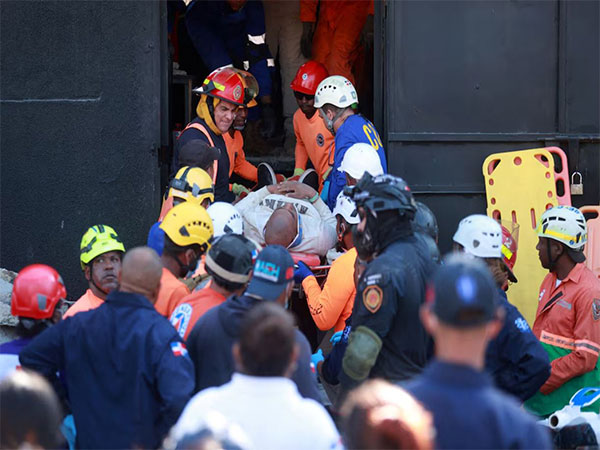Nepal lifts curbs on public vehicles despite warnings of third COVID-19 wave
Jun 30, 2021

Kathmandu [Nepal], June 30 : Public vehicles in Nepal's capital Kathmandu have been permitted to operate from Tuesday as the local authorities move forward with the unlocking process despite warnings of the third wave of COVID-19.
Calling for a relaxation of prohibitory orders as part of the unlock, a meeting of Chief District Officers of Kathmandu, Bhaktapur and Lalitpur decided to operate public vehicles on an odd-even basis.
The District COVID Crisis Management Center (DCCMC) of Kathmandu had earlier made a recommendation to this effect after consulting with the health offices based in the districts.
According to the decision, public buses with more than 25 seats will be allowed to operate in Kathmandu from 6 am to 7 pm. The buses and other means of public transport are, however, required to follow health standards, keep sanitisers in the bus and maintain passenger distance.
"I am quite happy with it. People who had to move from one place to another use to face a lot of problems, they do not get to go to hospitals whenever they need. Now, this situation has been eased," Anish Thapa, a resident of Kathmandu, told ANI.
The prohibitory order has been relaxed in recent days by allowing private vehicles to operate on an odd-even basis and shops in various sectors on alternative days.
Public transport in the Valley has resumed its services after almost a hiatus of two months due to the prohibitory orders enforced to combat COVID-19.
However, people fear that the recent relaxation could further spread the mutated version of COVID-19. Earlier this year, the nation recorded daily cases above 9,000 amid the second wave. These cases have now settled around 2,000 and the positivity rate has come down to 20 per cent from 45 per cent.
Public health experts are warning that a third wave of the COVID-19 pandemic is imminent.
"Looking onto the threat of the pandemic, the lockdown should be continued, which in one sense would not be practical as the working class would be bearing the brunt of it. But those who do not have private vehicles face the problem of commuting from one place to another," Sadhana Chhetri, another commuter, told ANI.
Between May 31 and June 6, a combined 1,27,656 PCR and RDT tests were conducted in the country, out of which 38,162 people tested positive with a positive rate of 29.89 per cent. Similarly, between June 7 and 13, a further 1,09,514 PCR and RDT tests resulted in 27,259 people testing positive with a positive rate of 24.89 per cent.
Last week, restrictions in the Himalayan nation were eased, but there were still 18,126 positive cases in 78,160 tests with a positive rate of 23.1 per cent.
Moreover, new mutated strains of COVID-19, such as Delta and Delta Plus variants that are highly transmissible, have not let the positive rate of Nepal come down, according to experts. With the virus mutating on a regular basis and a lack of vaccines, Nepal is expected to face a more severe wave of the pandemic.




















